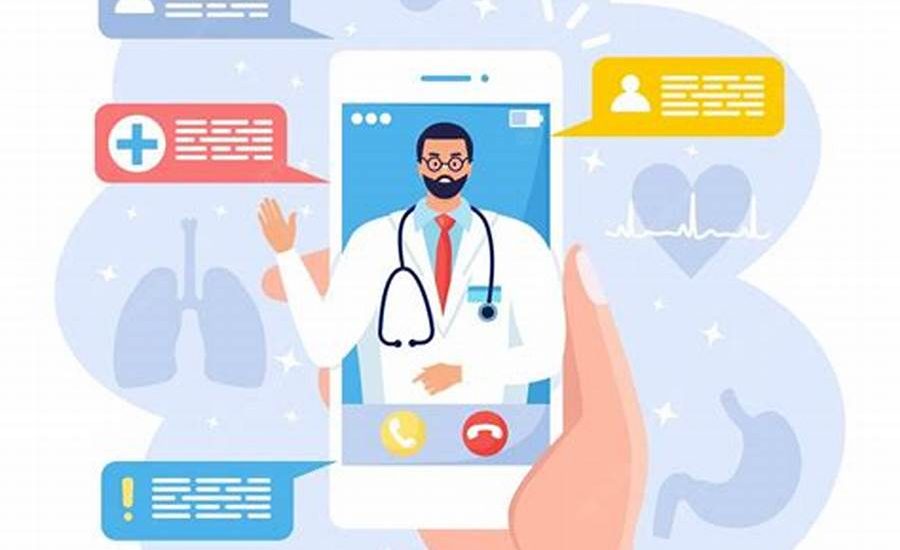Telehealth sessions have become a convenient and effective way to access mental health care from the comfort of your home. However, to get the most out of your virtual therapy experience, it’s important to approach these sessions with preparation and intention.
Whether you’re new to telehealth or looking to improve your current experience, these eight tips will help you make the most of your telehealth sessions and ensure you’re getting the support you need.
1. Choose a Private and Comfortable Space
The environment you choose for your telehealth sessions plays a significant role in how effective they are. A private, quiet, and comfortable space allows you to focus on the session without distractions.
Tips for Creating the Right Space:
- Minimize noise: Choose a room away from loud areas and use headphones to block out background noise.
- Ensure privacy: Let others in your household know you need uninterrupted time during your session.
- Comfortable seating: Sit in a chair or space where you feel relaxed but alert.
A dedicated space helps create a safe and focused environment for your therapy.
2. Test Your Technology in Advance
Technical issues can disrupt your telehealth sessions and take away valuable time. Testing your technology beforehand ensures a smooth and stress-free experience.
What to Check:
- Internet connection: Make sure your Wi-Fi is stable and strong enough for video calls.
- Device setup: Test your camera, microphone, and speakers to ensure they’re working properly.
- Platform login: Familiarize yourself with the telehealth platform and log in a few minutes early.
By addressing potential tech issues ahead of time, you can focus entirely on your session.
3. Prepare for Your Session
Just like in-person therapy, preparation is key to making the most of your telehealth sessions. Taking a few minutes to reflect on your goals and concerns can help you stay focused during the session.
How to Prepare:
- Write down topics: List the issues or questions you want to discuss with your therapist.
- Track your progress: Reflect on how you’ve been feeling since your last session and note any changes.
- Set goals: Think about what you want to achieve during the session, whether it’s gaining clarity or learning new coping strategies.
Preparation ensures that your time with your therapist is productive and meaningful.
4. Eliminate Distractions
Distractions can interrupt the flow of your telehealth sessions and make it harder to stay engaged. Taking steps to minimize interruptions will help you stay focused.
Tips for Reducing Distractions:
- Turn off notifications: Silence your phone and disable alerts on your computer.
- Close unnecessary tabs: Avoid multitasking by closing other apps or browser windows.
- Inform others: Let family members or roommates know not to disturb you during your session.
A distraction-free environment allows you to fully engage with your therapist and the therapeutic process.
5. Be Honest and Open
Honesty is essential for effective therapy, whether in-person or virtual. Being open about your thoughts, feelings, and experiences helps your therapist provide the best possible support.
How to Be Honest:
- Share your struggles: Don’t hold back on discussing difficult emotions or situations.
- Ask questions: If you’re unsure about something, ask your therapist for clarification.
- Provide feedback: Let your therapist know what’s working and what isn’t in your sessions.
Building trust and openness with your therapist is key to making progress.
6. Take Notes During the Session
Taking notes during your telehealth sessions can help you remember important insights, strategies, or action steps discussed with your therapist.
What to Note:
- Key takeaways: Write down any advice, coping techniques, or exercises your therapist suggests.
- Action items: Note any homework or tasks to work on before your next session.
- Questions for next time: Jot down any follow-up questions or topics to revisit.
Having notes to refer back to can reinforce what you’ve learned and keep you on track between sessions.
7. Practice Self-Care After the Session
Telehealth sessions can bring up intense emotions, so it’s important to practice self-care afterward to process your feelings and recharge.
Post-Session Self-Care Ideas:
- Journal: Write down your thoughts and feelings about the session.
- Relax: Take a walk, meditate, or do a calming activity to decompress.
- Celebrate progress: Acknowledge any breakthroughs or steps forward you made during the session.
Self-care helps you integrate what you’ve learned and maintain emotional balance.
8. Follow Through on Your Therapist’s Recommendations
The work you do outside of your telehealth sessions is just as important as the sessions themselves. Following through on your therapist’s recommendations ensures you’re making progress toward your goals.
How to Follow Through:
- Complete homework: Practice any exercises or techniques your therapist assigns.
- Track your progress: Keep a journal or log to monitor how you’re feeling and what’s working.
- Stay consistent: Attend sessions regularly and stay committed to the process.
Consistency and effort between sessions are key to achieving lasting results.
Why Telehealth Sessions Are Effective
Telehealth sessions offer a convenient and flexible way to access mental health care, but their effectiveness depends on how you approach them. By following these eight tips, you can maximize the benefits of your telehealth sessions and make meaningful progress in your mental health journey.
If you’re ready to explore telehealth therapy, my private practice in Melrose, MA offers virtual sessions tailored to your needs. Visit my services page to learn more about how I can support you on your path to better mental health.
Resources for Telehealth:
- American Psychological Association – Telehealth – Learn more about telehealth and its benefits.
- National Institute of Mental Health – Telehealth – Explore resources for virtual mental health care.
Telehealth sessions are a powerful tool for improving mental health. With the right preparation and mindset, you can make the most of your virtual therapy experience.

